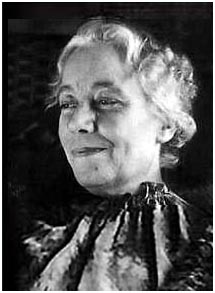Castration anxiety is an overwhelming fear of damage to, or loss of, the penis—a derivative of Sigmund Freud's theory of the castration complex, one of his earliest psychoanalytic theories. The term refers to the fear of emasculation in both a literal and metaphorical sense.

In Freudian psychoanalysis, the phallic stage is the third stage of psychosexual development, spanning the ages of three to six years, wherein the infant's libido (desire) centers upon their genitalia as the erogenous zone. When children become aware of their bodies, the bodies of other children, and the bodies of their parents, they gratify physical curiosity by undressing and exploring each other and their genitals, the center of the phallic stage, in the course of which they learn the physical differences between the male and female sexes and their associated social roles, experiences which alter the psychologic dynamics of the parent and child relationship. The phallic stage is the third of five Freudian psychosexual development stages: (i) the oral, (ii) the anal, (iii) the phallic, (iv) the latent, and (v) the genital.
Neo-Freudianism is a psychoanalytic approach derived from the influence of Sigmund Freud but extending his theories towards typically social or cultural aspects of psychoanalysis over the biological.
In Freudian Ego psychology, psychosexual development is a central element of the psychoanalytic sexual drive theory. Freud believed that personality developed through a series of childhood stages in which pleasure seeking energies from the child became focused on certain erogenous areas. An erogenous zone is characterized as an area of the body that is particularly sensitive to stimulation. The five psychosexual stages are the oral, the anal, the phallic, the latent, and the genital. The erogenous zone associated with each stage serves as a source of pleasure. Being unsatisfied at any particular stage can result in fixation. On the other hand, being satisfied can result in a healthy personality. Sigmund Freud proposed that if the child experienced frustration at any of the psychosexual developmental stages, they would experience anxiety that would persist into adulthood as a neurosis, a functional mental disorder.
Nancy Julia Chodorow is an American sociologist and professor. She began her career as a professor of Women's studies at Wellesley College in 1973, and from 1974 on taught at the University of California, Santa Cruz, until 1986. She then was a professor in the departments of sociology and clinical psychology at the University of California, Berkeley until she resigned in 1986, after which she taught psychiatry at Harvard Medical School/Cambridge Health Alliance. Chodorow is often described as a leader in feminist thought, especially in the realms of psychoanalysis and psychology.

Helene Deutsch was a Polish-American psychoanalyst and colleague of Sigmund Freud. She founded the Vienna Psychoanalytic Institute. In 1935, she immigrated to Cambridge, Massachusetts, where she maintained a practice. Deutsch was one of the first psychoanalysts to specialize in women. She was a Fellow of the American Academy of Arts and Sciences.

In psychology, womb envy denotes the envy that men may feel of the biological functions of the female. The neo-Freudian psychiatrist Karen Horney (1885–1952) proposed this as an innate male psychological trait. These emotions could fuel the social subordination of women, and drive men to succeed in other areas of life, such as business, medicine, law, and politics. Each term is analogous to the concept of female penis envy presented in Freudian psychology. In this they address the gender role social dynamics underlying the "envy and fascination with the female breasts and lactation, with pregnancy and childbearing, and vagina envy [that] are clues and signs of transsexualism and to a femininity complex of men, which is defended against by psychological and sociocultural means".
Phallocentrism is the ideology that the phallus, or male sexual organ, is the central element in the organization of the social world. Phallocentrism has been analyzed in literary criticism, psychoanalysis and psychology, linguistics, medicine and health care, and philosophy.

Feminists have long struggled with Sigmund Freud's classical model of gender and identity development, which centers on the Oedipus complex. Freud's model, which became integral to orthodox psychoanalysis, suggests that because women lack the visible genitals of the male, they feel they are "missing" the most central characteristic necessary for gaining narcissistic value—therefore developing feelings of gender inequality and penis envy. In his late theory on the feminine, Freud recognized the early and long lasting libidinal attachment of the daughter to the mother during the pre-oedipal stages. Feminist psychoanalysts have confronted these ideas and reached different conclusions. Some generally agree with Freud's major outlines, modifying it through observations of the pre-Oedipal phase. Others reformulate Freud's theories more completely.
Barbara Creed is a professor of cinema studies in the School of Culture and Communication at the University of Melbourne. She is the author of six books on gender, feminist film theory, and the horror genre. Creed is a graduate of Monash and La Trobe universities where she completed doctoral research using the framework of psychoanalysis and feminist theory to examine horror films. She is known for her cultural criticism.
Gynophobia or gynephobia (/ˌɡaɪnəˈfoʊbiə/) is a morbid and irrational fear of women, a type of specific social phobia. Gynophobia is found in ancient mythology as well as modern cases. A small number of researchers and authors have attempted to pin down possible causes of gynophobia.
Clara Thompson was an important figure in the revisionist “cultural school” of psychoanalysis in the 1940s and 1950s, though today she is less well remembered than her culturalist colleagues Karen Horney, Harry Stack Sullivan and Erich Fromm. Thompson herself had no pretensions to theoretical innovation but primarily was seen as a very capable teacher, clinician and organizational leader.

Karen Horney was a German psychoanalyst who practiced in the United States during her later career. Her theories questioned some traditional Freudian views. This was particularly true of her theories of sexuality and of the instinct orientation of psychoanalysis. She is credited with founding feminist psychology in response to Freud's theory of penis envy. She disagreed with Freud about inherent differences in the psychology of men and women, and like Adler, she traced such differences to society and culture rather than biology.

In neo-Freudian psychology, the Electra complex, as proposed by Swiss psychiatrist and psychoanalyst Carl Jung in his Theory of Psychoanalysis, is a girl's psychosexual competition with her mother for possession of her father. In the course of her psychosexual development, the complex is the girl's phallic stage; a boy's analogous experience is the Oedipus complex. The Electra complex occurs in the third—phallic stage —of five psychosexual development stages: the oral, the anal, the phallic, the latent, and the genital—in which the source of libido pleasure is in a different erogenous zone of the infant's body.

In classical psychoanalytic theory, the Oedipus complex refers to a son's sexual attitude towards his mother and concomitant hostility toward his father, first formed during the phallic stage of psychosexual development. A daughter's attitude of desire for her father and hostility toward her mother is referred to as the feminine Oedipus complex. The general concept was considered by Sigmund Freud in The Interpretation of Dreams (1899), although the term itself was introduced in his paper A Special Type of Choice of Object made by Men (1910).
Penis envy is a stage in Sigmund Freud's theory of female psychosexual development, in which young girls experience anxiety upon realization that they do not have a penis. Freud considered this realization a defining moment in a series of transitions toward a mature female sexuality. In Freudian theory, the penis envy stage begins the transition from attachment to the mother to competition with the mother for the attention and affection of the father. The young boy's realization that women do not have a penis is thought to result in castration anxiety.
Feminist psychology is a form of psychology centered on social structures and gender. Feminist psychology critiques historical psychological research as done from a male perspective with the view that males are the norm. Feminist psychology is oriented on the values and principles of feminism.
Phallic monism is a term introduced by Chasseguet-Smirgel to refer to the theory that in both sexes the male organ—i.e. the question of possessing the penis or not—was the key to psychosexual development.

Sigmund Freud is considered to be the founder of the psychodynamic approach to psychology, which looks to unconscious drives to explain human behavior. Freud believed that the mind is responsible for both conscious and unconscious decisions that it makes on the basis of psychological drives. The id, ego, and super-ego are three aspects of the mind Freud believed to comprise a person's personality. Freud believed people are "simply actors in the drama of [their] own minds, pushed by desire, pulled by coincidence. Underneath the surface, our personalities represent the power struggle going on deep within us".
Josine Müller was a German medical doctor and psychoanalyst. She was born on October 10, 1884, in Hamburg and died on December 30, 1930, on a voyage to the Canary Islands.






